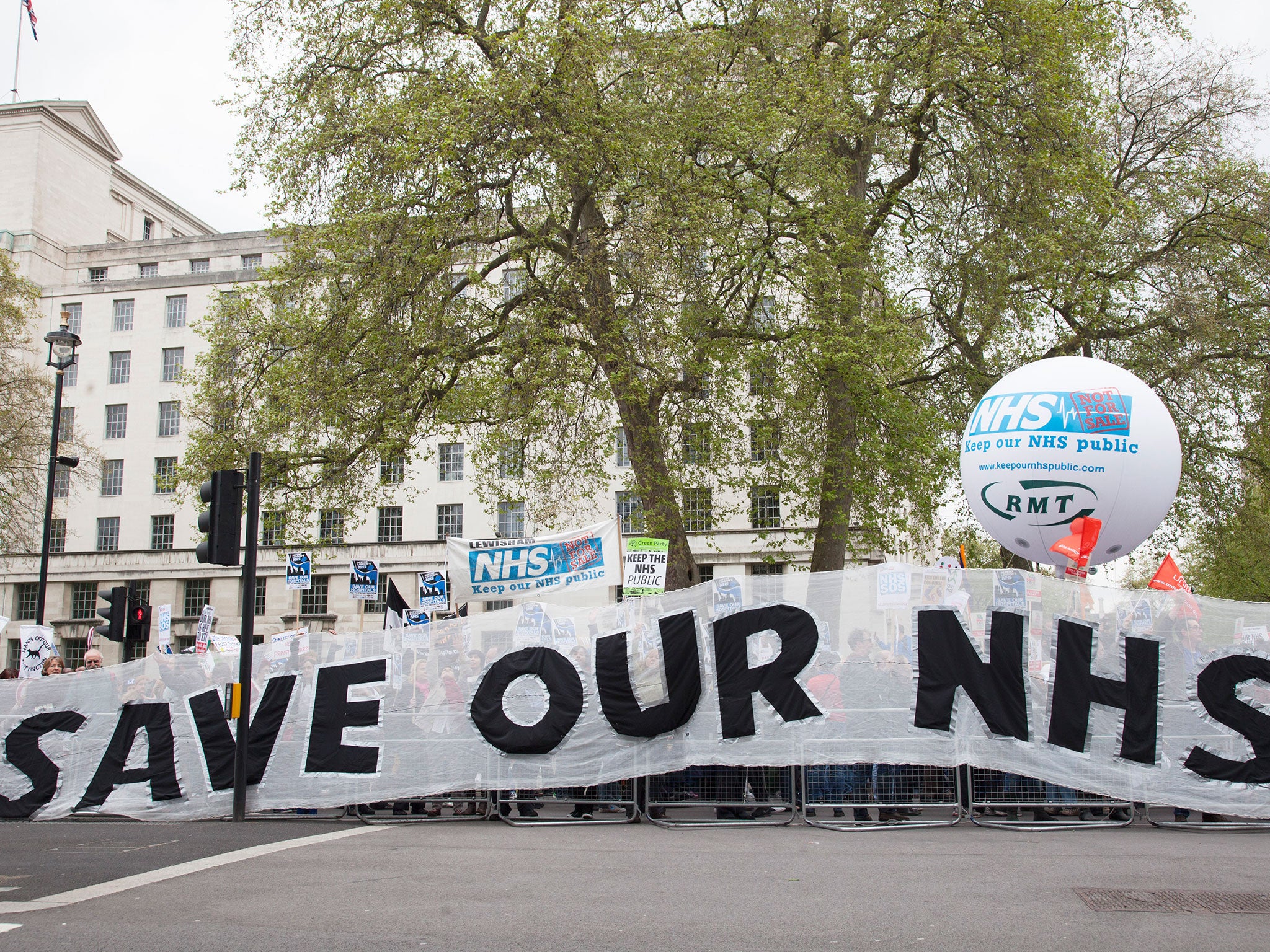NHS hospitals declare record overspends as experts warn health service is 'maxed out'
Nearly nine in 10 of England’s hospitals ended 2015/16 in the red

NHS hospitals and other providers of health services have declared record overspends for the year 2015/16, as experts said the health service was “maxed out” and that patients would begin to see the effects.
Analysis by the regulator NHS Improvement confirmed that the provider sector deficit for the past year – the amount by which hospitals, ambulance trusts and other services in England have over-reached their budget – amounted to £2.45bn.
Nearly nine in 10 of England’s hospitals ended the year in the red, in figures that experts said would rule out mismanagement or inefficiency as an explanation, and instead point to a system-wide crisis of squeezed budgets and increasing demand.
It is the second year in a row the provider sector has ended in the red, but this year’s figure is almost double last year’s deficit.
Analysts at the Nuffield Trust think tank said that even NHS Improvement’s record figure was an underestimate of the true scale of the problem, estimating that the real underlying figure was more than £3.2bn and that the official numbers had been “flattered” by accountancy measures.
The record-breaking overspend could lead the Department of Health to exceed its spending limit for the year. One whistleblowing hospital finance director told the BBC that the DH had been “cooking up accounting alchemy”, such as shifting the recording of capital spending into day-to-day running costs, “to ensure the NHS meets the spending limit set by the Treasury”.
A DH spokesman said that such a mechanism would make no difference to the Department’s overall spending picture, full details of which will be available by the summer.
Chris Hopson, chief executive of the NHS Providers umbrella body, said that expecting the NHS to keep cutting costs while trying to meet rising demand was placing an “intolerable burden” on staff.
“Today’s report reveals how the combination of increasing demand and the longest and deepest financial squeeze in NHS history is maxing out the health service,” he said.
“At the same time as treating the highest ever number of patients, NHS trusts are £2.45 billion in the red, with 65 per cent of providers in deficit…This record number, with a record overall deficit, is simply not sustainable. We have to rapidly regain control of NHS finances otherwise we risk lengthening waiting times for patients, limiting their access to services, and other reductions in the quality of patient care.”
The Government has given the NHS a £3.8bn funding increase this year – part of an £8bn uplift between 2015 and 2020. However, at the same time, the NHS has been told to cut £22bn from its budget at a time of increasing demand from an ageing and growing population.
Richard Murray, director of policy at the King’s Fund think tank said the deficit figures showed “a health system buckling under huge financial and operational pressures.”
“At the same time, performance against key targets is deteriorating and concerns about quality of care are increasingly widespread,” he said. “The challenge facing the NHS is not limited to hospitals, general practice is also in crisis as they try to keep up with demand.”
Hospitals and other services spent £3.6bn on temporary agency staff, £1.4bn more than planned. Health Secretary Jeremy Hunt has singled out agency spending as a key cause of overspends and the Government has introduced measures to cut down on the practice.
But Labour’s Shadow Health Secretary, Heidi Alexander, said that ministers had “lost complete control of hospital finances” and warned patients would pay the price.
“The NHS is now in the deepest cash crisis in its history,” she said. "This is a crisis that the Tories can no longer choose to ignore. We need an urgent plan to get hospital finances back on track and to improve patient care."
A Department of Health spokesman said: "We recognise parts of the NHS are under pressure as demand rises due to our ageing population, but we are providing intensive support to improve performance, boost efficiency and reduce the use of expensive agency staff.”
Join our commenting forum
Join thought-provoking conversations, follow other Independent readers and see their replies
Comments
Bookmark popover
Removed from bookmarks